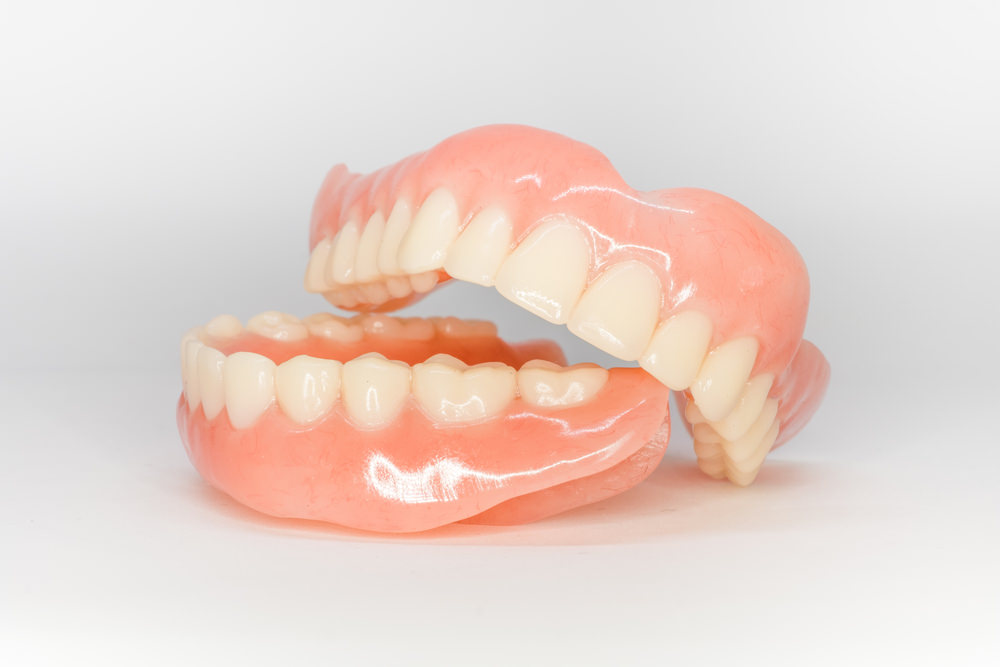Dentures vs. Bridges – What are the Differences, and which one is the Winner?
Dentures vs. Bridges – What are the Differences, and which one is the Winner?
Missing teeth can have a very serious effect on your health, your self-confidence, and your smile.
The two most common solutions your dentist may use to solve these issues are dentures or bridges.
While both solve the same problem, they do so in a different way.
This itself presents a variety of pros and cons for you to take into consideration before choosing an option.
So, if you are looking to solve the solution behind your missing teeth, this article presents you with some knowledge of both dentures and bridges.
Let’s see which one will work for you!
There are two different types of dentures;
- A full denture – this is for when you have no teeth in your mouth left. It can be fitted to either the upper or lower jaw, or sometimes both.
- A partial denture – this is for when you have some remaining teeth, and the removable partial denture is attached to those teeth. Once again, this can be fitted to either the upper or lower jaw, or sometimes both.
4 Main Types of Bridges
Depending on your dental situation, one of the following types of bridges may be used.
Traditional Dental Bridge
this is the most common type of bridge and is used when you still have natural teeth on either side of the gap of your missing tooth.
The bridge is made up of one or more fake teeth, which are held in place by abutments, or dental crowns.
These abutments are cemented onto the teeth next to your missing tooth.
Cantilever Dental Bridge
this is very similar to the traditional bridge, but the fake teeth are supported by a dental crown on one side only, instead of both sides.
This means if you only have one natural tooth next to the gap, a bridge can still be supported.
Maryland Dental Bridge
this is regarded as a more conservative option to the traditional bridge.
It is made up of a false tooth that is held in place by porcelain and metal
It is bonded onto the backs of the two natural teeth on either side of your missing tooth.
Implant-Supported Dental Bridge
This is an option for when you have more than one tooth missing.
Rather than being secured by crowns or frameworks, they are supported by dental implants.
For every missing tooth, there may be one implant to hold the bridge in place.
What are the Pros and Cons of a Denture over a Bridge?
A denture has a few downfalls and I’ll run through these below.
Dentures may not necessarily have a good fit for your mouth.
This is because it has to be removed in and out of your mouth regularly, so it has to have a pathway in which it can be inserted.
You may find a denture always moves in your mouth.
If it is a partial denture, and there are any remaining teeth in your mouth, the denture is still not attached directly to those teeth.
If it is a full denture, and you do not have any teeth at all in your mouth to hold it in place, the only thing it has to hold in place is a vacuum seal.
As the denture is not very well-fitting, there are gaps and spots where food can get caught between the denture and your mouth.
This means a thorough dental health regime must be followed at all times, or you can develop serious health issues.
You may feel self-conscious wearing the denture as it is quite noticeable, being made from both acrylic (plastic) and metal.
A partial denture may actually move any existing teeth.
Every time you take it in and out of your mouth or bite down, it pushes on the denture.
This in turn pushes on the teeth holding it, and this continuous movement loosens the teeth that remain in your mouth.
This can also leave the teeth open to infections or bite problems.
Denture Advantages
It’s not all bad when it comes to dentures though.
They do have some positive sides.
The main being they are a lot cheaper than a bridge.
Mostly because of the material used, you can get a full or partial denture from $1200 – $2500.
Whereas, one crown in a bridge alone could cost you that.
Yes, you read that right, one tooth in a bridge could be the price of a whole set of dentures.
Dental Bridge Benefits
A bridge definitely has a few benefits over the denture.
A bridge is made from alloy and porcelain, so it is much more aesthetically pleasing.
The bridge has a much more precise fit than the denture.
It is actually moulded onto your mouth, and any teeth that are missing are replaced by very intimately fitting porcelain onto metal.
This not only means the fit is much better, but you will feel far less self-conscious, as it is barely noticeable, and you cannot see any missing teeth.
A bridge will last much longer than a denture.
This is because it is made from a very strong alloy, and made from a much more precise technique that is designed to fit your mouth.
It joins any remaining teeth together, there is no movement under the bridge which is wonderful.
Dental Bridge Downfalls
However, bridges do come with their downfalls.
Here are 3 points to consider.
As noted above, they can be a much more costly treatment.
They can be hard to clean and food can get stuck underneath the bridge.
There are ways of cleaning them, such as Superfloss, or even toothpicks, but it can be quite difficult.
You must ensure you keep up a regular and thorough dental cleaning regime to rid yourself of any food particles that get stuck under the bridge.
Unfortunately, bridges are not made for everyone.
Generally, the bridge only works well if you have one or two missing teeth, and the rest must be in fairly good health.
If it starts getting much worse than that, you might have some trouble getting a bridge, as there is only one set way that the bridge can be designed.
To sum it up, you must be careful that the span of the bridge where you are missing teeth is not too long.
If the span is too long, you may apply pressure in the middle of that span and break the bridge.
What Effect will a Set of Dentures have on my Lifestyle?
Dentures will have a big impact on both your diet and lifestyle.
If wearing a full set of dentures, you will be able to put far less pressure on your mouth when you are eating.
A good example is, if you are wearing a full set of dentures, you will be no longer be able to bite into an apple.
This is because, the moment you put pressure on one side of the dentures, the vacuum seal holding it in place will unseat the other side and it will come out of your mouth.
If you are wearing a partial set of dentures, it is still not advisable to bite into that same apple, because of the material (plastic) they are made from.
The apple being stronger than the plastic, if you keep biting into it, you will end up breaking the denture.
So, you will definitely have to be careful about what you eat and not bite into anything too hard or chewy.
Are there any Risk Hazards that come with a Set of Dentures?
Yes.
With a partial set of dentures, there is a risk that they may be made too small for your mouth and be a choking hazard.
Because they are removable, they have to be big enough so that if they do happen to dislodge.
Especially at night time whilst you are sleeping – they cannot go down your throat.
Can you Get a Bridge for Your Front Teeth?
Yes.
It’s quite common amongst people who have had an accident and lost their front teeth.
Or even if their front teeth have become blackened from nerve damage.
Your dentist can close – or bridge – those gaps and restore your smile with a dental bridge.
Conclusion
Still contemplating dentures vs. implants?
Aside from price, the bridge wins hands down, in terms of health, aesthetics, safety, diet and lifestyle.
However, all of this still remains dependant on where you are biting, how you are biting, the width of your bite, how many teeth you have remaining, and the health of those remaining teeth.
Get your trusted dentist to assess all of the above.
And remember, as long as you’ve got enough teeth for the span, and keep up a good dental cleaning regime, the bridge will last you a long time.
Dentures or Bridges? What do you think and let us know in the comments below!
By Dr. V
Created at May 10, 2019, Updated at January 25, 2025





